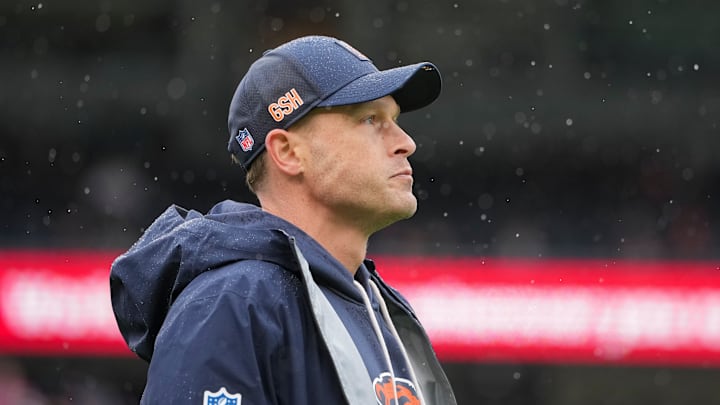Winning in the NFL is rarely linear, and it’s almost never pretty.
But for the now 7–3 Chicago Bears -- winners of seven of their last eight -- style points don’t matter, and the league doesn’t award bonus points for aesthetics.
Good teams survive whatever form the week demands, whether it’s a track meet or a slugfest, and right now the Bears are proving they’re capable of thriving in both arenas.
The evidence showing the Cardiac Bears are finding ways to win games
Bears fans saw it in Week 9 when Chicago traded haymakers with Cincinnati in a 47–42 shootout, matching explosive play with explosive play. Then, just two weeks later, they ground out a 19-17 divisional win in Minnesota -- a physical, up-and-down ballgame littered with defensive stands and a wild second half.
Those are two entirely different scripts, and the Bears didn’t blink at either. And for all the outside noise about how wins “should” look, the reality is simple: you don’t apologize for stacking victories in the NFL. You just keep stacking them.
What’s giving Chicago its backbone right now is a structure that has finally taken shape under head coach Ben Johnson, creating some organizational consistency. That stability has bled directly into year two of Caleb Williams, where the young quarterback’s development is beginning to mirror a franchise that’s learned how to build around him, rather than through him.
The offense isn’t asking Williams to be a superhero on every play. The run game has become a real pillar -- physical, varied, and increasingly reliable with D'Andre Swift and rookie Kyle Monangai. The Bears aren’t simply relying on inside zone or power, either; they’re layering counter, gap elements, quarterback movement, and eye candy into a playbook that started the year fairly rigid.
Now, it’s adaptable. It’s unpredictable. It allows Williams to operate on schedule, then create when the structure breaks. That kind of diversification has turned stress plays into opportunities, rather than survival attempts.
And while Chicago’s defense has had stretches that feel outright volatile -- miscommunications, inconsistent run fits, and long lapses in coverage -- the talent is very much there. Montez Sweat can change the geometry of opponents’ protections. Jaquan Brisker, Kyler Gordon, and Jaylon Johnson, when healthy together, give the secondary real teeth.
Even with the occasional breakdown, it’s a unit capable of keeping Chicago afloat when the offense sputters or the script gets sideways.
That’s the mark of a legitimately good football team: not perfection, not dominance, but versatility. Finding answers in the moments where lesser teams fold. Winning shootouts. Winning grinders. Winning when the quarterback shines, but also when he merely survives.
For Chicago, they aren’t a finished product, and they don’t need to be. Right now, they’re something far more valuable in the NFL’s week-to-week survival environment -- adaptable, confident, and unbothered by the manner in which wins arrive.
Read more: Bears broke Justin Jefferson to the point of a meltdown in Week 11 win
And now, for the first time in a long time, it feels like Chicago is a team nobody wants to play.
